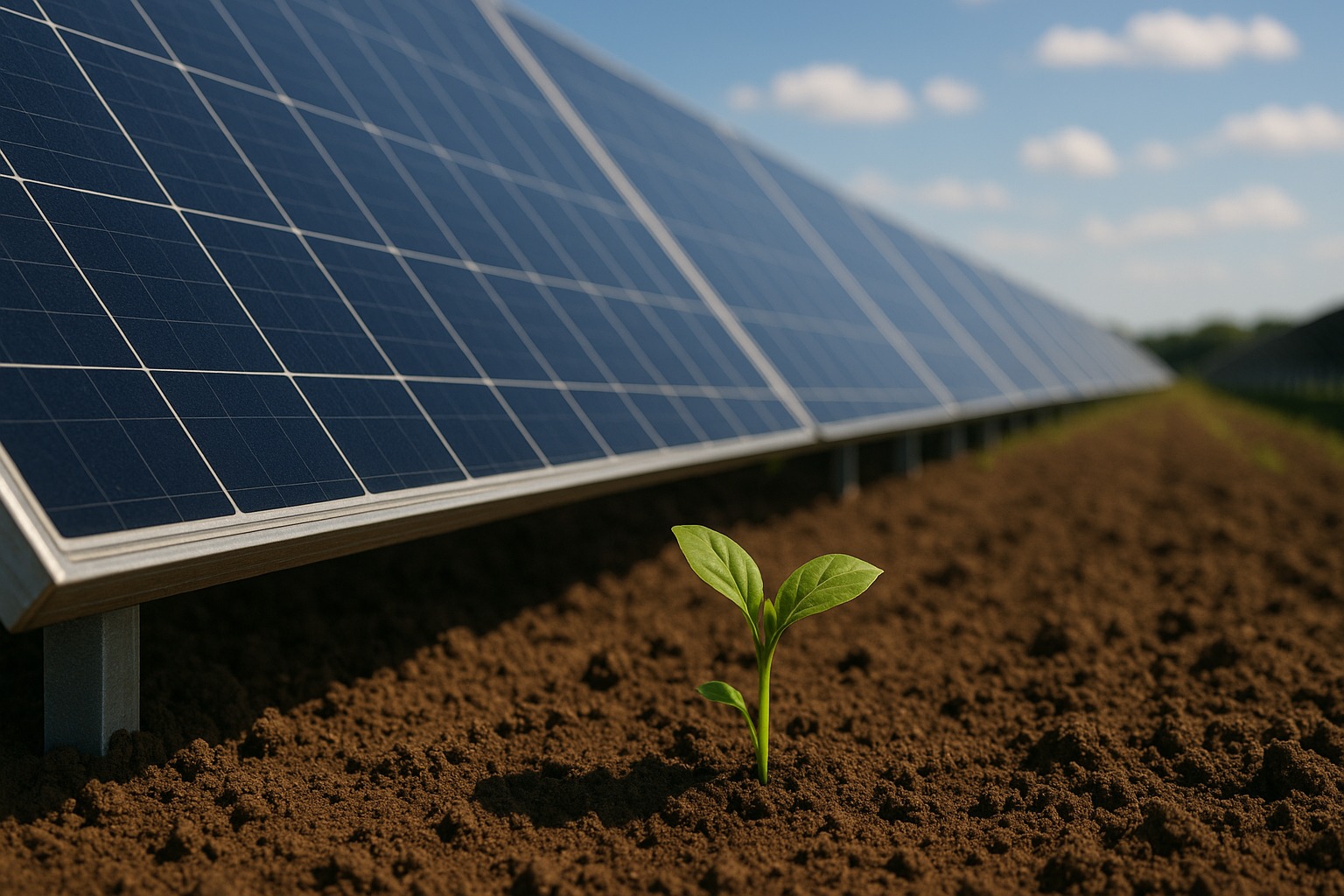Clean energy should start with clean manufacturing. While solar panels help create a low-carbon future, the way we make them matters just as much as how they perform. Real sustainability goes beyond installing panels, it’s about how we manufacture them, what resources we use, and the environmental impact we leave behind. For the solar industry to scale responsibly, we need to think about every step of the process.
GREW Solar is aligning with this mindset through a combination of integrated facility practices, renewable-powered operations, and measurable green initiatives. Recognized as the second runner-up in the ESG – Large category at the ET NOW Machinist Super Shopfloor Awards 2025, our approach is steadily evolving to meet higher environmental standards at every level of manufacturing.
Manufacturing Solar Panels with Solar Power
The real sustainability story starts with your energy source. At our manufacturing facility in Dudu, Jaipur, we power our operations with the same solar technology we produce. This action reduces emissions and proves that clean energy manufacturing works in practice.
By putting sustainability into action, we’re showing that solar manufacturers can lead India’s renewable energy transition from the factory floor up. As buyer expectations evolve and policy frameworks become more strict, manufacturers who decarbonize their own operations have a competitive advantage.
Smart Water Management
Manufacturing can be water-intensive practice, but it doesn’t have to be wasteful. Our Jaipur manufacturing facility has an in-house Sewage Treatment Plant with a 30 KLD daily capacity that processes 100% of incoming wastewater.
Here’s how our system works:
- Biological treatment safely breaks down wastewater from facilities and canteens
- A filter press system reduces sludge generation to nearly zero
- 100% of treated water gets reused for campus landscaping
- Overall, 55% of our total water needs come from recycled sources
This closed-loop approach meets all national and international wastewater standards while dramatically reducing our freshwater consumption. The system also creates a buffer against water supply disruptions, ensuring consistent operations while maintaining our environmental commitments. It’s proof that industrial processes and environmental responsibility can work hand in hand.
Rethinking Logistics and Supply Chain
Our sustainability practices extend beyond our manufacturing facility. We’ve replaced single-use wooden pallets with reusable alternatives to cut down transport-related waste. This circular approach to logistics helps reduce our Scope 3 emissions, something which is important to buyers and project developers.
Our material sourcing follows strict protocols to ensure every component has verified origins and meets international compliance standards. When we know where our materials come from, we can say that they’re manufactured with environmentally responsible processes.
Each solar cell goes under multiple testing and certification assessments which directly support our sustainability goals. Rigorous testing means our modules last longer in the field and reduce the frequency of replacements which minimises solar waste. When a solar panel operates reliably for 25+ years instead of failing after 10-15 years, the environmental impact per kilowatt-hour of energy produced drops. It is a fact that products that last longer require fewer resources over their lifecycle.
This traceability reduces module failures, minimizes e-waste, and helps customers achieve better long-term energy yields. Reliable modules mean fewer site visits for maintenance, reducing transportation emissions. When customers can count on consistent performance, they’re more likely to invest in solar installations more and move towards cleaner energy. Our quality-first approach multiplies the environmental benefits of every solar panel we produce.
Building Environmental Culture
We believe that environmental responsibility starts with people because when employees make sustainability a part of their day-to-day work, it becomes a part of their life. This cultural shift has been an important part of our plan to create long-term environmental impact.
Through our “Pledge A Tree” campaign, we’ve planted over 2,500 trees on our Jaipur campus so far, creating a green ecosystem, a physical reminder of our environmental commitment. When team members see these trees growing, they’re reminded that their work contributes to something bigger than just work.
Our Nature Pod initiative involving employees was another important part of our environmental action. Team members created over 420 sustainable planting units. Employees who participate in these programs become sustainability champions within their teams, spreading awareness organically.
These programs improve environmental footprint and they build awareness and responsibility. Whether it’s choosing suppliers or optimising processes, employees who understand our environmental mission make choices that align with our values.
Setting the Standard for the Industry
As solar energy becomes central to India’s and the world’s clean energy future, manufacturers must lead by example whether its product output or how responsibly that output is achieved. Our practices like solar-powered plants, water recycling systems, sustainable packaging and tree plantation programs signal a shift toward sustainability-first manufacturing.
With plans to scale to 11.0GW of solar module manufacturing and 8.0 GW of cell manufacturing by 2026, we’re committed to environmentally responsible growth. Every operational decision we take,we’ll be continuously working to enhance our sustainable operations and introduce new practices to redefine what’s possible in clean manufacturing.
Why? Because we believe that clean energy is not only an end product but a part of the entire process.


